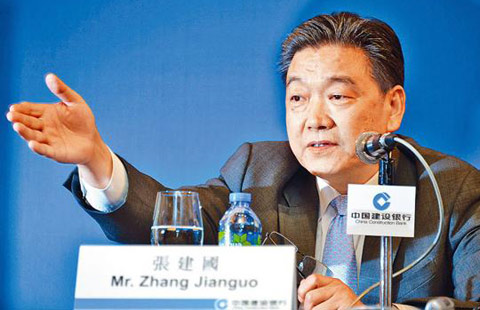A class act: UK universities to attract more Chinese students
By RIAZAT BUTT (China Daily) Updated: 2015-04-13 09:22"My first impression of England is that it is very clean and idyllic," said Cheng Fanxian, 23, who studies interpreting and translation in the northeast of the country.
"Newcastle University is huge. My teachers are professional. My university and study program meet my expectations, and there are many other Chinese students on my course."
She plans to have a career outside China once she has graduated, she said.
The UK has also left a positive impression on Ni Wei, 27, a teacher who lives in Beijing.
"I chose Sheffield Hallam University because my friend who graduated from there told me it was really awesome.
"The best part of studying overseas was the traveling, while the most difficult part was those endless essays."
Reflecting on his decision to return to China, he said: "I came back because I wanted to be with my family, and since coming back I have been working at an English training institute.
"If I had a chance to do things again, I would not change my mind. Actually, I'd like to recommend my friends to take the chance to stay abroad and enjoy the life there."
Extra returns
Educating foreign students produces a legion of ambassadors ready to extol the virtues of their host country, in addition to generating financial returns to the state, increasing employment, fostering international business partnerships, boosting tourism and providing extra funds for universities.
The UK Department for Business, Innovation and Skills estimates that the value of the education-related export market-that is, the goods and services bought by foreign fee-paying students in their destination country-may reach about 21.5 billion pounds ($32 billion) by 2020 and 26.6 billion pounds by 2025. The department estimates that in 2011-12, overseas students paid 10.2 billion pounds in UK tuition fees and living expenses.
It is a picture replicated across other major European study destinations.
At the moment France plays host to more than 35,000 Chinese students, and Prime Minister Manuel Valls is keen for that figure to reach 50,000 this year. Campus France, a national agency for promoting higher education, international student services and student mobility, said in a report in November that students from abroad contributed $5.05 billion to the economy during their stay in living expenses, university fees, flights on French airlines to and from their home countries and money spent by families and friends during visits. Asian students comprised 19 percent of the 295,084 foreign student population in 2013-14, the report said.
There is a nickname for Chinese students when they return from overseas study-haigui, meaning sea turtle. Millions of Chinese have swapped home for higher education overseas since the start of the country's reform and opening-up in 1978, and the numbers have soared over the decades.
Meanwhile, domestic universities have been utterly transformed, their populations rocketing.
The United Nations Educational, Scientific and Cultural Organization said 31.3 million students were enrolled in tertiary education in China in 2011, compared with 6.36 million in 1999. Every year the number of students inevitably outstrips the number of places available in the country's 2,400 or so institutions.
An expanding middle class and a freshly minted elite are fueling this seemingly relentless rise in Chinese students seeking international education.
It is worth noting, said Nottingham University Professor Gu Qing, that the number who go abroad for higher education represents a fraction of China's overall university-aged population. Gu, whose area of research is the experience of Chinese students overseas, said: "About 2 percent go overseas. They are not only the educational elite, but the socio-economic elite. Sociologists would argue that this is a phenomenon of inequality as the vast majority of Chinese do not have that experience, and 98 percent will not go overseas."
It is not only Chinese students who are going overseas to get an education; overseas institutions are increasingly migrating to China, whether through a fully operational campus, an agency or an office in a skyscraper.
The annual-and unofficial-Chinese student recruitment campaign began on March 21 as the 20th China International Educational Exhibition Tour was held at the Agricultural Exhibition Center in Beijing. Last year, 473 institutions and education service providers from 29 countries and regions took part in the Beijing leg of the tour. About a quarter of these were from non-English speaking countries. CIEET said 363 were returning exhibitors and that 50,300 people attended the event. About 28,000 visited the Beijing venue in a two-day period.
Other cities in this year's CIEET itinerary are Guangzhou, Hangzhou and Shanghai. The tour ended on March 29.
"I don't think anyone could contemplate what would happen if Chinese student numbers fell," said Ilieva of the UK Higher Education Funding Council.
"Most countries would be affected if there were a decline as they are such a significant component of the higher education landscape in international hosting countries. The consequence is beyond money. There would be a financial impact, but the impact may be greater on the viability of courses."
Bu Han contributed to the story.
- Chinese-invested Bayon Airlines extends wing to Cambodia
- Investors to subscribe shares of 30 Chinese companies
- Out with stir fry, in with real business nous
- Learning to change, adapt and engage
- Self-driving vehicles expected on roads in next few years
- Cruise industry sailing eastward
- A class act: UK universities to attract more Chinese student
- Stock reform allows investors up to 20 accounts

















